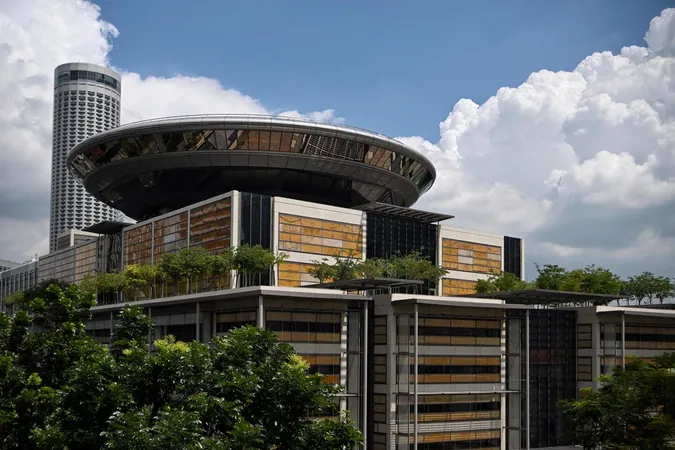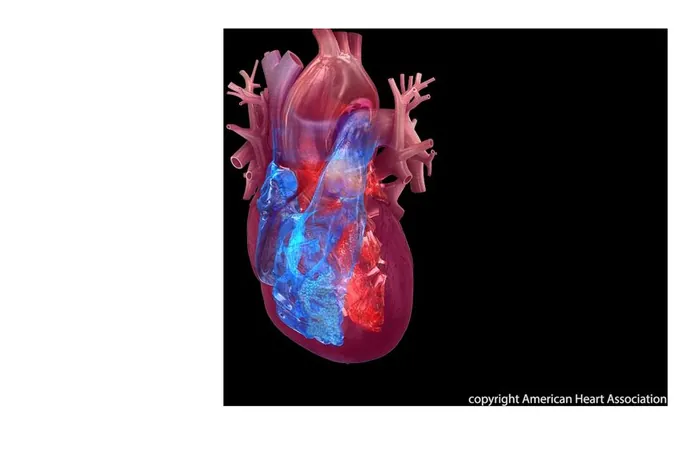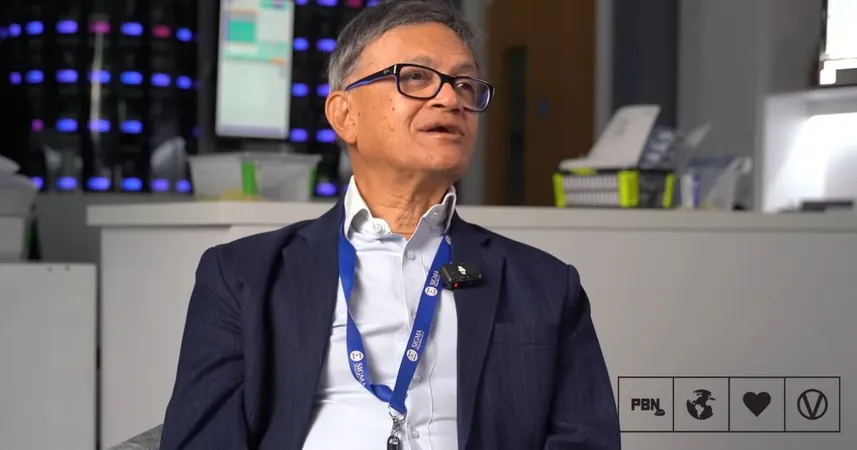
Supreme Court Upholds Controversial Drug Laws: A Setback for Convicted Traffickers
2025-08-28
Author: Wei
Singapore’s Supreme Court Rules on Misuse of Drugs Act
In a major legal ruling, Singapore's highest court has firmly rejected a constitutional challenge to the Misuse of Drugs Act (MDA) provisions. This decision imposes a significant burden on accused drug traffickers, requiring them to disprove presumed facts in their cases.
On August 28, a five-judge panel led by Chief Justice Sundaresh Menon ruled that the presumptions set forth by the MDA do not breach the Constitution. These presumptions allow the court to assume that if certain basic facts are proven, the accused possesses knowledge of drugs or has them in possession.
Presumptions Under Fire: What They Mean for the Accused
Under these provisions, for instance, merely having the keys to a location where illegal drugs are found implies that an individual had control over those drugs until proven otherwise. Similarly, possession of drugs infers knowledge about their nature.
The court clarified that while these presumptions can be rebutted, the responsibility lies with the accused to provide proof to counter the presumption. This ruling is part of an effort to tackle what the court describes as a pervasive societal issue—drug trafficking.
Legal Challenge from Death Row Inmates
This ruling stemmed from a legal challenge mounted by four inmates on death row, who argued that the MDA’s presumptions infringe upon their constitutionally guaranteed rights. Their defense team claimed that the presumptions violated Article 9, protecting the right to life and liberty, and Article 12, which ensures equality before the law. They posited that these laws effectively shift the burden of proof from the prosecution to the accused, undermining the principle of presumption of innocence.
Court’s Justification: Balancing Justice and Legislative Intent
In its judgment, the court emphasized that the legal burden remains with the prosecution to prove guilt beyond a reasonable doubt. Nonetheless, it affirmed Parliament’s authority to enact laws allowing the use of presumptions, particularly when dealing with matters within the accused's knowledge.
The court also referenced a previous Privy Council ruling, asserting that requiring an accused person to disprove presumed facts is not unconstitutional, especially when those facts are particularly known to the accused.
Background of the Inmates and Their Ongoing Legal Battle
The four inmates—Jumaat Mohamed Sayed, Lingkesvaran Rajendaren, Datchinamurthy Kataiah, and Saminathan Selvaraju—were all sentenced to death between 2015 and 2018 for drug trafficking. Their appeals against convictions were dismissed from 2016 to 2020.
Previous attempts to challenge the presumptions in court were dismissed, with an appeal deemed withdrawn due to procedural errors. A renewed application to revive the appeal was also rejected by the Court of Appeal, which indicated that their substantive arguments held no merit.
Implications of the Ruling: A Tightening Grip on Drug Trafficking
This ruling represents a significant legal precedent in Singapore's ongoing war against drug trafficking, reinforcing the government's strong stance against such offenses. With the burden of proof now firmly on the accused regarding key aspects of their knowledge and possession, the implications for future drug-related cases could be profound.



 Brasil (PT)
Brasil (PT)
 Canada (EN)
Canada (EN)
 Chile (ES)
Chile (ES)
 Česko (CS)
Česko (CS)
 대한민국 (KO)
대한민국 (KO)
 España (ES)
España (ES)
 France (FR)
France (FR)
 Hong Kong (EN)
Hong Kong (EN)
 Italia (IT)
Italia (IT)
 日本 (JA)
日本 (JA)
 Magyarország (HU)
Magyarország (HU)
 Norge (NO)
Norge (NO)
 Polska (PL)
Polska (PL)
 Schweiz (DE)
Schweiz (DE)
 Singapore (EN)
Singapore (EN)
 Sverige (SV)
Sverige (SV)
 Suomi (FI)
Suomi (FI)
 Türkiye (TR)
Türkiye (TR)
 الإمارات العربية المتحدة (AR)
الإمارات العربية المتحدة (AR)